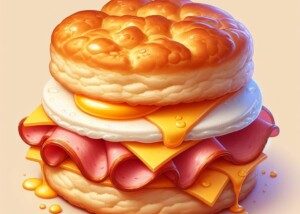How Do Infected Foot Sores Creep Up on a Diabetic?
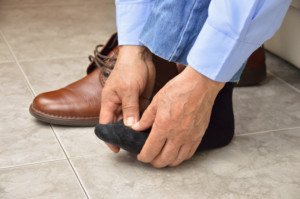
Why don’t more diabetics pay attention to their feet so that sores don’t become infected before they know it?
Many diabetics must have portions of their limbs removed due to infections that have spread and killed tissue, having originated from an unchecked sore on their foot. How does this happen?
It’s not enough to explain this by saying diabetics can’t feel the sore, and hence, have no idea it’s brewing with infection.
Looking at your feet regularly means you’ll readily see developing sores that are on the top surface of your foot.
As for the bottom, holding a mirror beneath a foot will allow the diabetic to see the underside.
Though some people can’t position themselves like this and live by themselves, many others are perfectly capable of regularly checking their feet for sores, cuts and other wounds that they can’t feel.
But many just don’t do this and let things slide, so I put this question before Alison Massey, MS, RD, LDN, registered dietitian and certified diabetes educator with over 10 years of experience in various community and clinical settings.
“Individuals with uncontrolled diabetes can get infected sores on their feet,” affirms Massey.
“When blood glucose levels are elevated, cuts and sores heal more slowly.
“Keeping blood glucose levels in a healthy range is one way to ensure that individuals with diabetes heal in a healthy manner just like someone without diabetes.
“Proper foot care is part of diabetes self-management which includes looking at the bottom of the feet.
“Unfortunately, some individuals who are elderly and/or overweight/obese do have some trouble examining their feet.
“It is important for individuals with diabetes to visit with a podiatrist at least once a year.”
A condition called diabetic neuropathy numbs sensation, which is why diabetics need to look at their feet frequently, including with a mirror, and if they live with someone, that person could assist.
Not all diabetics, who end up with an amputation caused by an infected foot, are elderly, obese or otherwise mobility impaired.
Alison Massey has been working in the field of nutrition since 2010 helping individuals make sustainable changes to improve their health.
 Lorra Garrick has been covering medical, fitness and cybersecurity topics for many years, having written thousands of articles for print magazines and websites, including as a ghostwriter. She’s also a former ACE-certified personal trainer.
Lorra Garrick has been covering medical, fitness and cybersecurity topics for many years, having written thousands of articles for print magazines and websites, including as a ghostwriter. She’s also a former ACE-certified personal trainer.
.
Top image: Shutterstock/cunaplus
Hot Flashes, Menopause and Diabetes: Connection?
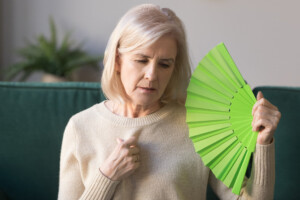
Are hot flashes and night sweats from menopause related to diabetes in any way?
This is the question I posed to Alison Massey, MS, RD, LDN, registered dietitian and certified diabetes educator with over 10 years of experience in various community and clinical settings.
Here is what Massey says: “No. I’m not aware of a connection here. Sweating can be a sign of hypoglycemia (low blood glucose).
“If a woman has diabetes she may want to monitor her blood glucose to make sure it is not too low.
“It would be important to distinguish between a hot flash and hypoglycemia symptoms.”
A woman may have diabetes and not know it, and by coincidence may be experiencing hot flashes due to either being in menopause, or postmenopausal hot flashes.
Diabetes does not cause hot flashes or a feeling of being overheated, but the classic signs of either type 1 or type 2 are that of excessive thirst, more urination than usual, unexplained weight loss and problems with vision.
The presence of hot flashes does not indicate a disease process no matter how fierce or drenching they are.
Both conditions — hot flashes and diabetes — can easily coexist in the same woman.
Other Symptoms of Diabetes
- Intense hunger with no explanation (e.g., new heavy workouts).
- Fatigue that cannot be explained (e.g., no increase in activity levels necessitating more rest)
- Irritability despite no change in circumstances
- Frequent infections of the skin, gum or vagina
- Slow healing of minor wounds
Though being overweight is strongly associated with type 2 diabetes, it is not a factor in type 1.
Besides hot flashes, menopause is associated with
- Vaginal dryness and atrophy
- Sleep problems
- Mood changes
- Gain of fat without eating more
- Thinning hair, loss of hair and dry skin
- Loss of breast fullness
Menopause occurs to nearly every woman. Hot flashes are extremely common.
Diabetes affects millions. The first two conditions are not connected to the third.
Many people don’t know they have diabetes because early symptoms are mild or mistaken for normal fatigue, aging or stress.
Type 2 diabetes develops slowly, so changes in thirst, vision or weight may go unnoticed.
Alison Massey has been working in the field of nutrition since 2010 helping individuals make sustainable changes to improve their health.
 Lorra Garrick has been covering medical, fitness and cybersecurity topics for many years, having written thousands of articles for print magazines and websites, including as a ghostwriter. She’s also a former ACE-certified personal trainer.
Lorra Garrick has been covering medical, fitness and cybersecurity topics for many years, having written thousands of articles for print magazines and websites, including as a ghostwriter. She’s also a former ACE-certified personal trainer.
.
Top image: Shutterstock/fizkes
Can Byetta Cause a Diabetic to Lose Weight & How Much?
Byetta indeed can cause weight loss in a diabetic.
“Byetta is in a class of medications called GLP-1 receptor agonists,” says Alison Massey, MS, RD, LDN, registered dietitian and certified diabetes educator with over 10 years of experience in various community and clinical settings.
“This class of medications works by mimicking a hormone called incretin, that our body naturally makes to help lower blood glucose after meals by making you feel full at mealtimes.
“The speed that food empties from your stomach to your small intestine is reduced and you will feel full sooner.
“This slows the digestion process and rise in blood glucose after you eat.
“They also help the pancreas release more insulin and help keep the liver from releasing too much stored insulin.
“They generally do help with weight loss; according to the company website individuals who used Byetta lost an average of four pounds.”
Byetta No Magic Bullet for Weight Loss in Diabetics
But this doesn’t mean that Byetta (generic name exenatide) will melt off 50 pounds, especially in the absence of consistent exercise and proper eating habits. It’s not designed for busting body fat, but a mild reduction in pounds may result.
The only magic elixir for weight loss, including for those with diabetes, is strength training and interval cardio training.
Strength training must be done at an intense level to produce startling weight loss, though at a moderate level, it will still incur weight loss.
The best strength training exercises for a diabetic or anyone involve using more than one joint at a time, such as squats, bench presses, rows and overhead presses.
Interval training involves alternating periods of casual pacing with short bursts of high effort movement, such as mixing short dashes on a walking path with casual walking.
Byetta should be considered only as an adjunct to weight loss, not the magic bullet.
Alison Massey has been working in the field of nutrition since 2010 helping individuals make sustainable changes to improve their health.
 Lorra Garrick has been covering medical, fitness and cybersecurity topics for many years, having written thousands of articles for print magazines and websites, including as a ghostwriter. She’s also a former ACE-certified personal trainer.
Lorra Garrick has been covering medical, fitness and cybersecurity topics for many years, having written thousands of articles for print magazines and websites, including as a ghostwriter. She’s also a former ACE-certified personal trainer.
Top image: Freepi.com/wayhomemedia
Blood Tinged Crust in Inner Corner of Eye: Cause?
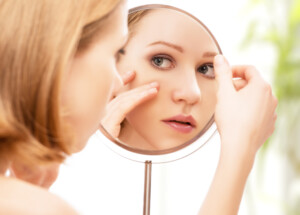
Have you discovered blood tinged gunky crust in the corner of your inner eye?
My experience with this will give you great peace of mind, but I also interviewed a doctor whose explanation will be equally reassuring.
If you have this symptom, I’m betting you wear contact lenses–and especially I’m betting you’ve been wearing them for a very long time, and for at least 10 hours a day.
Every night when I removed my rigid, gas permeable contact lenses, I had to clean out the inner corners of my eyes.
One day I began noticing a reddish tinge to the crust that I was cleaning out of the inner corner of my right eye only. I examined the eye and could not find any kind of scratch or trauma to explain this.
The blood was never on the eye anywhere nor on the lid; it was only mixed with the gunk or crust that forms in the inner corner as the day wears on.
I speculated that I had some mild conjunctivitis going on, since there was more crust coming out of the right eye than the left, and years ago, I had had conjunctivitis—and a LOT of this substance (but no blood in it).
I realized I had not soaked my contact lenses in an enzyme solution for quite some time, and theorized that accumulated protein and oil deposits on the lenses—that were not getting removed during the nightly cleaning process—were irritating my eye and stimulating production of the crusty gunky substance.
But how the apparent blood was getting mixed in there, I had no idea.
Well wouldn’t you know, this problem ceased after the contacts had been enzymed.
I still got the crusty gunk, but there was no red in it. Another thing I noticed is if I wore my contact lenses for fewer hours (putting them in in the afternoon rather than morning), there was less crust.
For a long time this problem had been solved, and then one day I noticed again the red tinge—just a very tiny bit—and I had been wearing my contacts from morning till night.
Contact lenses should be enzymed every month, and I had not been doing that. I began wearing them less again, and the tinge disappeared.
Then I stopped wearing contacts altogether, to prepare for LASIK surgery.
The amount of crust in the corners of my eyes come nighttime immediately became significantly reduced. There was no sign of that blood.
An accumulation of gunky crust in the corners of my eyes, since stopping contact lens wear, has remained minimal, and of course, there is no sign of any minute traces of blood.
What does a doctor say?

Dr. Dean, in practice for 35+ years and author of “The Magnesium Miracle,” is also a naturopath, nutritionist, herbalist, acupuncturist, lecturer and consultant.
 Lorra Garrick has been covering medical, fitness and cybersecurity topics for many years, having written thousands of articles for print magazines and websites, including as a ghostwriter. She’s also a former ACE-certified personal trainer.
Lorra Garrick has been covering medical, fitness and cybersecurity topics for many years, having written thousands of articles for print magazines and websites, including as a ghostwriter. She’s also a former ACE-certified personal trainer.
.
Top image: Shutterstock/Evgeny Atamanenko
Bubble Butt from Squats vs. Natural Fat
It’s a myth that squats will turn EVERY flat butt into a bubble bootie.
As a gym-goer for endless years and a former personal trainer, I’ve always been very aware of different kinds of physiques.
I’ve had a few overweight clients tell me they didn’t want to “lose” their bubble butt as they lost body fat.
I’ve observed plenty of booties to see if there is truly a correlation between intense squat workouts (or lunges) and developing a bubble butt.
Some women swear that their butts grew after they began doing squats. And this may very well be the case—for those individuals.

But One Size Doesn’t Fit All
Just like some women will develop noticeable trapezius muscles with a strength training program, while most won’t, some women — for reasons that I have to attribute at least partially to genetics — will grow a bigger bootie from doing intense squats over many months.
Other women with a flat behind won’t be so lucky, no matter how committed they are to squat workouts.
It’s unluck of the genetic draw.
It’s tempting to say that you can grow a bigger, rounder butt by building up the major muscle in this area, the gluteus maximus.
After all, just look at the behinds of female Olympic sprinters, gymnasts and speed skaters: huge in some cases.
However, I see just as many big butts — even bubble proportions — among women at Walmart, and these women aren’t necessarily fat.
In fact, I’ve known women, who’d be classified as fat or obese, who had flat butts. I see overweight women all the time with flat behinds.

Shutterstock/MarcusVDT

Shutterstock/photomak
And I’ve seen medium weight and even slender women with well-endowed derrieres.
This has to do with genetic distribution of body fat. Some women “carry it” in their hips; some in their thighs; and…some in their behinds.
A thin woman a flat butt will likely not achieve a bubble shape simply if she gains 50 pounds, even 100 pounds of fat.
I see women all the time at the gym who, as evidenced by the rest of their physique, are either beginners to strength training, or, if they’ve been doing it awhile, they don’t do much and/or they work out only mildly.
And many of these women have bubble butts.
Where do these well-endowed behinds come from in women who don’t do squats, or, if they do, use very light weight?
And they may be leg pressing only light weights, and be doing walking lunges with only a 10 pound dumbbell in each hand — not nearly enough to blow up the gluteus maximus.
The bubble in their butts is from fat, not muscle, while the size in a sprinter’s or gymnast’s behind is very developed muscle (gluteus maximus).
Don’t get me wrong: Squats are a GREAT exercise. And yes, some women swear by these for getting a bigger behind.
But thanks to genetics and natural fat distribution, not all women will get the bubble butt of their dreams no matter how intensely they pound out barbell squats, walking lunges, leg presses, track sprints or even hill sprints.
 Lorra Garrick is a former personal trainer certified through the American Council on Exercise. At Bally Total Fitness she trained women and men of all ages for fat loss, muscle building, fitness and improved health.
Lorra Garrick is a former personal trainer certified through the American Council on Exercise. At Bally Total Fitness she trained women and men of all ages for fat loss, muscle building, fitness and improved health.
How Does Aged Garlic Extract Reverse Heart Disease?
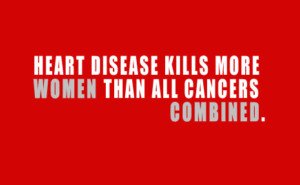
Yes, aged garlic extract CAN reverse heart disease plaque buildup.
Coronary artery disease is a slowly progressive disease that builds up in the arteries of the heart for over 10 years before the first symptoms.
Through multiple studies at Los Angeles Biomedical Research Institute at Harbor-UCLA, Dr. Matthew Budoff has shown that aged garlic extract can not only slow the buildup of these plaques in the arteries, but cause some reversal.
The study was done on 65 patients with prediabetes, and demonstrated that the patients given aged garlic extract actually had a reduction in the early forms of plaque, while those on placebo (no active ingredient) demonstrated progression of their heart disease.
This has great implications for the future of this therapy to reduce the number one cause of death among both men and women in the world.
How does aged garlic extract lower plaque?
It has been demonstrated through multiple studies that aged garlic extract reduces heart disease by lowering cholesterol, blood pressure and improving blood vessel health.
Three previous studies have demonstrated a positive effect on plaque buildup with calcium scans (the scans highlighted in the documentary “The Widowmaker,” which first aired in 2015).
These calcium scans use computed tomography (CAT scans) to show buildup of early plaque in the heart arteries.
They are the only way to know if someone has early coronary heart disease, short of an invasive (and expensive) angiogram in the hospital.
These scans give patients a “score” in which the amount of [calcified] plaque is quantified.
A zero score (no plaque) is great news, associated with a close to zero chance of having a heart attack for the next five years, and a high score (over 100 or over 400) is associated with a high rate of heart attacks, strokes and death.
Thus, using a natural supplement to slow the plaque should have great impact on the risk of heart disease over time.
A therapeutic dose of aged garlic extract would be two or three capsules a day, which is the equivalent of two to three whole garlic cloves a day.
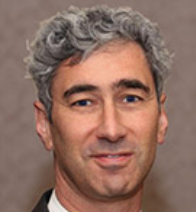
Dr. Budoff is at the forefront of the medical community’s efforts to create early detection methods for coronary heart disease.
 Lorra Garrick has been covering medical, fitness and cybersecurity topics for many years, having written thousands of articles for print magazines and websites, including as a ghostwriter. She’s also a former ACE-certified personal trainer.
Lorra Garrick has been covering medical, fitness and cybersecurity topics for many years, having written thousands of articles for print magazines and websites, including as a ghostwriter. She’s also a former ACE-certified personal trainer.
Why Abdominal Exercises Won’t Trim Belly Fat, What Does

Sit-ups, crunches, side bends, waist-turns, etc., never, ever strip fat off your middle — no matter how many reps you crank out; no matter what those TV infomercials claim.
Body fat is fuel in dormant form. This means that the excess fat in your stomach is untapped energy. You cannot convert belly fat to energy by doing abdominal routines.
Why? Because sit-ups, crunches, etc., don’t require enough energy to force your body to dip into your stomach’s fat reserves.
Abdominal/core muscles are stabilizer muscles. Their primary job is to stabilize the spine.
Stabilizer muscles are “sissy” muscles, in that they are naturally weak and small, not designed by nature for force production.
This is why, when you lift with your lower back muscles (instead of the legs), you can injure them.
Stabilizer muscles don’t require much energy for performance or recuperation from performance.
So how, then, do you force your body to raid the fat deposits in your belly?
By working hard the force-production muscles, primarily those in the legs!

Shutterstock/Undrey

Shutterstock/sarocha wangdee
Many people do not understand this concept, because we have been taught that to trim the middle, you must work the middle.
Legs have the largest, strongest muscles in the body. By vigorously applying weight routines to your legs, you will force your body to ransack the fat in your midsection to supply the legs with energy – not just during the workout, but for hours afterwards during recovery!
The same effect occurs when you weight-train your upper body, because your middle/upper back, chest, shoulders and arms also consist of force-production muscles.

Freepik.com, jcomp
So when a person at the gym comes up to me, pinching two inches on his or her waist, and asks, “How do I get rid of this? “I say, “Slam your legs with weights!” Their invariable response is, “What?”
Spend more time working your quadriceps, hamstrings, butt muscles, and upper body muscles, and less time doing crunches.
Five intense sets on the leg press machine and five tough sets of chest presses once a week will do far more for slashing belly fat, than will 1,000 crunches a day.
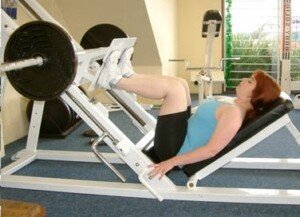
George Stepanek, CreativeCommons
So what about those infomercials? Don’t the models’ six-packs just gleam while they twist and turn on that funky abdominal gadget?
Well, of course! They’d gleam if they were shifting position on a hammock, too!
These gadgets usually come with a full-body weight training plan, as well as diet. The gadget in and of itself will not strip inches off your waistline.
Your body will pull energy from where it is stored. If it’s stored in your gut, you will lose fat there by working the force-production muscles.
 Lorra Garrick is a former personal trainer certified through the American Council on Exercise. At Bally Total Fitness she trained women and men of all ages for fat loss, muscle building, fitness and improved health.
Lorra Garrick is a former personal trainer certified through the American Council on Exercise. At Bally Total Fitness she trained women and men of all ages for fat loss, muscle building, fitness and improved health.
.
Top image: Freepik.com
Time It Takes Clavicle Fracture Bruising to Disappear
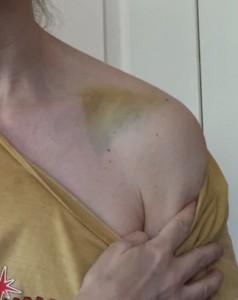
Bruising from a clavicle (collarbone) fracture may seemingly take forever to go away.
As I type this, I still have a green faint remnant of bruising from the clavicle fracture (nondisplaced hairline) that I sustained 54 days ago.
The image is of the bruising—before it reached peak appearance, meaning, the worst it got, from a visible standpoint.
I began seeing a very faint green tinge the day after the accident (I fell from a height), but it could pass for a vein—or at least, at the time, I tried to convince myself it was one of those green veins just underneath the skin, casting a faint green tinge.
But every day I looked there and noticed it was gradually becoming more prominent.
Again, the image shows what doesn’t seem to be much bruising, but it ultimately became quite prominent, looking as though an MMA fighter had slugged me there.
How long the bruising from my clavicle fracture will last, is something I’ll just have to update this article on. The clavicle fracture was confirmed with an X-ray.
Years ago in martial arts class, I was told that it takes only five pounds of pressure to break the collarbone—at the point near its middle—the section that you can easily see in a person when they are facing you.
With a knife-hand strike, just five pounds of pressure will break this bone.
In my case, I landed on the cap of my shoulder, and this caused a hairline break at the distal end, meaning, towards the end of the bone at the outer part of my shoulder. The bruising was (and still is) mainly shades of green.
UPDATE: Day 58, I can barely see the faintest remnant of the bruising, under the clavicle where it has “leaked” to over time. It is so barely visible that I officially deem this as its last day of visibility.
 Lorra Garrick has been covering medical, fitness and cybersecurity topics for many years, having written thousands of articles for print magazines and websites, including as a ghostwriter. She’s also a former ACE-certified personal trainer.
Lorra Garrick has been covering medical, fitness and cybersecurity topics for many years, having written thousands of articles for print magazines and websites, including as a ghostwriter. She’s also a former ACE-certified personal trainer.
Five Things Stopping You from Losing Belly Fat
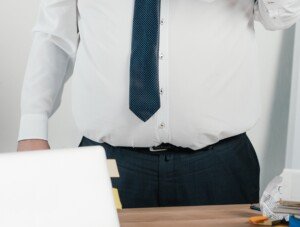
There are five reasons why you haven’t been able to lose your belly fat even though (or so you think) you’ve “tried everything.”
Fforget everything you THINK you know about how to lose belly fat.
Here are the reasons why you have not been able to lose belly fat:
No. 1. You are spending too much time doing abdominal exercises and not enough time working the LEGS. (I’ll explain that in a moment).
No. 2: You are not doing enough general strength training.
No. 3: Your cardio routines are not intense enough, and probably too LONG. (I’ll explain that in a moment).
No. 4: You’re performing strength training routines and cardio routines incorrectly.
No. 5: You’re not lifting heavy enough weight in your strength training routines.
Too Much Ab Machine
#1: Fat is a fuel source. Abdominal muscles are small and don’t need that much fuel to exercise or recover from exercise.
Hence, why loads of ab exercises will not cause the fat in this area to be burned up for fuel.

Shutterstock/Pises Tungittipokai
Leg muscles are the biggest in the body, and thus, require a lot of fuel to exercise and recover from exercise.
If you hit the legs hard with exercise (squats, leg press, leg curls, leg extensions, etc.), they will need large amounts of fuel. This will cause the fat in your belly to be burned for fuel.
Keep the Fire Burning
#2: The more strength training you do, the faster will be your resting metabolism, or your ability to burn fat for fuel just to keep you alive.

A complete strength training program will elevate your body’s ability to burn fat, including belly fat.
HIIT Me
#3: Cardio can burn substantial amounts of belly fat — in one of two ways.
The first way is to jog 10 miles nearly every day in as short a time as possible.
The second way is to do high intensity interval training for about 30 minutes, two or three times a week.

HIIT can be done by just about anybody. Alternate BRIEF bursts of your fastest running, walking, pedaling or stepping with one to several minutes of easy pacing. Depositphotos.com
HIIT triggers higher production of certain hormones that create a fat burning effect. Long duration cardio does not.
Poor Form
#4: Incorrectly performing strength training routines will burn far fewer calories (and thus less belly fat) than if done properly.
I recommend hiring a certified personal trainer to learn correct techniques.

Note that the barbell is crooked. This can strain muscles. Shutterstock/fotoliza
As for cardio, hanging onto cardio equipment (treadmill, revolving staircase, elliptical apparatus) will burn 20 percent LESS calories than when not hanging on.
Clinging to cardio machines (with exception of stationary bike) will interfere with efforts to burn belly fat.
Heavy Burns More
#5: The heavier the weight lifted, the more fat your body will burn, including in the belly, for fuel. But lifting heavy does not mean you’ll bulk up.

Freepik.com
A program for bulking up is specific and requires an equally specific diet to succeed in.
Look around at your gym and you’ll see sleek, lean people with enviable waistlines lifting loads of weight.
 Lorra Garrick is a former personal trainer certified through the American Council on Exercise. At Bally Total Fitness she trained women and men of all ages for fat loss, muscle building, fitness and improved health.
Lorra Garrick is a former personal trainer certified through the American Council on Exercise. At Bally Total Fitness she trained women and men of all ages for fat loss, muscle building, fitness and improved health.
.
Top image: Depositphotos.com
Is It Okay to Eat Chocolate Cake for Breakfast?
Chocolate cake for breakfast doesn’t contain any more sugar, “bad carbs” or fat than many traditional breakfast foods.
Not too long ago I was at the Cheesecake Factory with family. Now, anyone who’s familiar with the Cheesecake Factory knows that they have killer chocolate layer cake.
I knew I wouldn’t have much room for it after eating my huge appetizer of nachos, followed by pizza and pasta.
But others had ordered their dessert to eat right then and there, and asked me why I was ordering the chocolate cake to go (I guess they were surprised I didn’t have the room for it).
I said, “I’m going to eat it for breakfast, when I’ll be good and hungry for it.”
“Chocolate cake…for BREAKFAST?”
“Yes, why not?” Why not think outside the box?
“Even though I’m a RD, I’m definitely a chocoholic,” says Amanda A. Kostro Miller, RD, LDN, whose specialties are nutrition counseling, weight loss and medical nutrition therapy.
“So if someone eats healthy, is healthy and doesn’t have underlying medical conditions that call for specific nutritional needs (i.e., diabetes, hypertension, renal disease), chocolate cake can be part of a healthy diet,” explains Kostro Miller.
“If this cake-for-breakfast person wants to change their health status or weight status, however, something like a chocolate cake for breakfast may need some modifications (and there are many healthier options).
“Also, it’s important to know what your food gives to you when you eat it.
“A piece of chocolate cake gives you mostly calories, fat and sugar. However, if the rest of your diet is healthy, we can still enjoy these foods.
“If having cake allows you to eat healthy for the rest of the day, this can be part of your personalized diet plan.”
So-Called Breakfast Foods just As “Bad” As Chocolate Cake

People eat a stack of pancakes smothered in syrup and butter for breakfast all the time.
This has as much white flour, sugar and fat as any serving of chocolate layer cake.
In fact, IHOP offers Belgian Dark Chocolate Mousse Pancakes. Certainly, this is ordered more often during breakfast hours than later on.
I bet you’ve had French toast for breakfast. That, too, is loaded with calories, sugar, white flour — and with butter, there’s fat – and no less of these than in a serving of chocolate layer cake.
And what about donuts and especially eclairs for breakfast? People eat all sorts of pastries for breakfast, like giant cinnamon rolls, bear claws and sticky buns—all the sugar and fat of a piece of chocolate layer cake.
But as mentioned, if you’re going to eat chocolate cake for breakfast, make sure your food intake for the rest of the day is health-giving — and it would be a wise idea to have fruit for dessert after dinner, rather than something loaded with sugar, flour and fat.



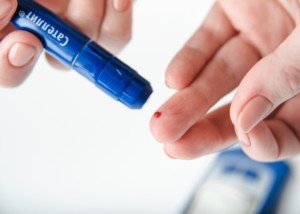

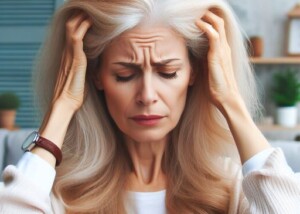
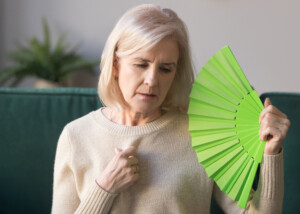
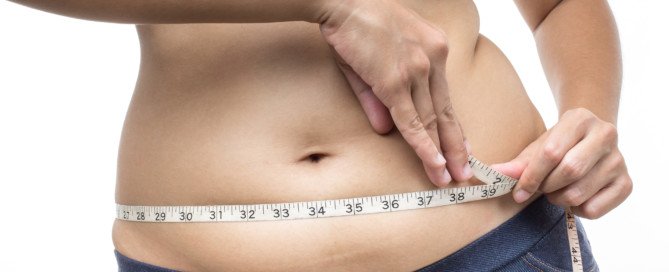

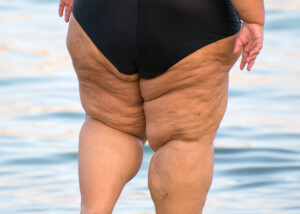






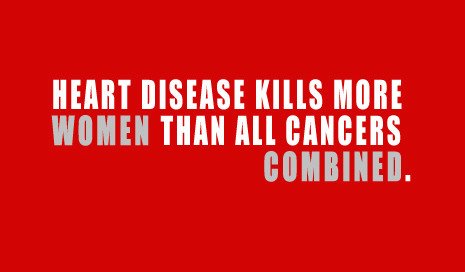

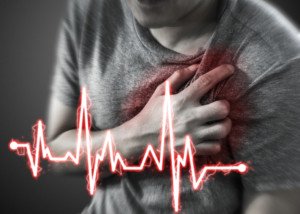


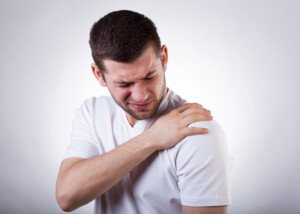
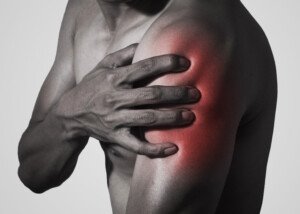



 has worked with U.S. veterans, people with eating disorders and those with various acute and chronic diseases.
has worked with U.S. veterans, people with eating disorders and those with various acute and chronic diseases. 

